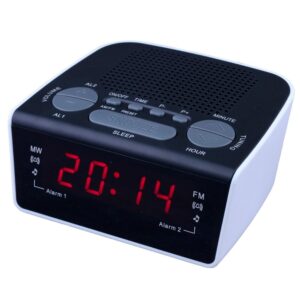 The content and information below is republished with permission from the Cleveland Clinic.
The content and information below is republished with permission from the Cleveland Clinic.
The extra hour of daylight is a welcomed sign of spring for most – especially after a long, brutal winter. The lost hour of sleep, though, may leave you groggy and irritable.
About 20 percent of Americans report they get less than 6 hours of sleep according to the National Sleep Foundation. The Centers for Disease Control and Prevention consider insufficient sleep an epidemic in the U.S., a public health issue linked to vehicle crashes, industrial disasters and occupational errors.
“In a nation that is already sleep deprived, losing an extra hour can make a huge impact,” sleep specialist Harneet Walia, MD says.
Losing even just one hour of sleep can cause you to feel groggy the next day and impair your concentration.
“It can affect all of us especially if you’re already sleep deprived,” Dr. Walia says.
Adjusting to the time change is different for everyone. Some people adjust in a few days; for others, it takes more time. Dr. Walia offers these tips:

Start preparing a few days early
“Begin by going to bed 15 to 30 minutes earlier than your usual bedtime,” Dr. Walia says. “Start preparing this weekend.” Your body needs that bit of extra time to make up for the lost hour.
Wake up early
Exposing yourself to the bright light in the morning will help you adjust, Dr. Walia says. After a dark winter season, the sun may seem harsh at first.
Don’t take naps
Avoiding naps is key for adjusting to the time change. “Try not to take naps,” Dr. Walia says. “If you have to take them, take them early and for no longer than 20 minutes.”
Long naps are a sign of sleep deprivation and other underlying health issues. Research says short naps improve brain function, leaving you refreshed afterward.
Avoid coffee, alcohol
Avoid coffee and caffeinated beverages four to six hours before bedtime. Alcohol also prohibits you from getting quality sleep, so avoid it late at night. Alcohol can cause nightmares and breathing problems. It’s also important to follow good sleep hygiene habits.
“Use the bed only for sleeping,” Dr. Walia says. “Your mind adjusts to the habit of getting into bed for sleep.” Avoid watching T.V., eating, and even reading for some.
Staying consistent with the amount of sleep you get each night helps, too – that includes weekends.
“Sleeping in on weekends may sound like a good idea, but it can disrupt your sleep cycle,” Dr. Walia says.
Last but not least, to turn off your mind, turn off your electronics.
Courtesy of health.clevelandclinic.org
Recent Comments